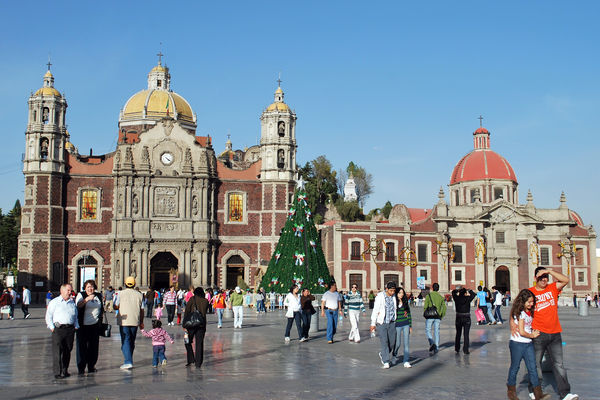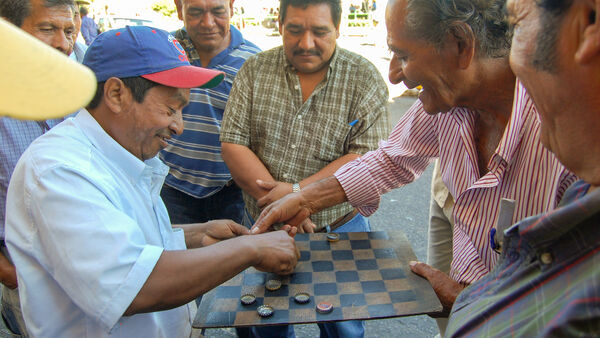Vacationing South of the Border
By Rick Steves

People ask me where I go for a vacation. Europe is certainly my passion and the focus of my work, but Central America has long held a fascination for me. I took my first trip to the region (to both Nicaragua and El Salvador) in 1988, during El Salvador's civil war. I returned to both countries in 1991, after the war ended, and again to El Salvador in 2005. Here are some impressions I brought back from my most recent visit.
I have long recommended, "If you want a meaningful trip to Central America, consider Managua over Mazatlán." I haven't changed my mind, but I did come from my last trip thinking that Nicaragua and El Salvador are not the most enjoyable places to visit.
This excursion took me through big, bustling cities and smaller, more intimate villages. I split my trip into three chunks, spending three days each in Managua (for Christmas), San Salvador, and Mexico City (New Year's). I went first class by hiring local guides with cars for two days in each stopover during my nine-day adventure. This enabled me to experience and learn much more than I would have on my own.
I stayed in comfortable hotels: Hotel Europeo in Managua (cozy, with motel-style rooms around a palm-tree garden, pool, and thatched restaurant in a residential neighborhood); Sheraton Presidente Hotel in San Salvador (top-end, where big-shot politicians stay); and Hotel Catedral in Mexico City (beautifully located behind the cathedral, near the Zócalo, in the colonial center). I'd recommend each one. They each had a wonderful staff, a line on fairly priced taxis, and offered a convenient refuge from the intensity of the streets.
I also visited two of the most popular, idyllic countryside towns: Granada in Nicaragua and Suchitoto in El Salvador. Both have charming, laid-back quarters where backpackers can sip a latte and get online, where rich adventurers can luxuriate in wistful 19th-century colonial elegance, where shops don't have armed guards, where massages are cheap, and where meek artisans reign over street corners. While the beaches, volcanoes, and lake resorts are smaller and less dramatic than in other parts of the region (such as those in Costa Rica and parts of Mexico), I took the time to visit the major natural wonders in each country.
I found that the cuisine of the region was simple, the service was friendly, and the prices were low. Unlike in many parts of Europe, the souvenirs were rustic, the museums and galleries were humble, and the coffee (even in lands famous for producing coffee beans) made me homesick. When relaxing here, my drink of choice was a rum and Coke — which is called a "Nica Libre" ("Free Nicaragua") rather than a "Cuba Libre" — in part, I think, because it's fun to order.
If you don't speak Spanish, the language barrier can be more of a challenge than you'll find in Europe, and English-language newspapers and magazines are scarce. Nevertheless, the people are endearing, the lessons are inspiring, and it's truly a land of rapid change. I found myself saying "back in the old days" a lot, referring to memories from my earlier trips. There's something about visiting parts of Central America that stirs a certain traveling soul. As some expats I've gotten to know here say about El Salvador in particular, "It's like a low-grade virus. It gets in you, and you can't get rid of it."
While my first visit in 1988 was to witness and understand an actual war between societal groups, today that struggle has moved from the battlefield to politics. The gap between rich and poor now fills the docket in each country's parliament. Today, proponents for economic justice may win their battles, but they face an infinitely more powerful foe than their local elites: a globalized economy. Through corporation-led globalization, there's been a leap in the power of the developed world over the developing world.
I feel like an expert on Europe, but in Central America, I'm humbled by my lack of knowledge. Fortunately, my nine-day crash course in political and economic issues came with great teachers and the ultimate classroom. In speaking with so many local experts, it occurred to me that Americans who come here in search of understanding (like me) want things in black-and-white clarity. In reality, it is much more complex. I didn't come home with the clean answers I sought, but I did return with a sense of optimism, as the societies of Nicaragua and El Salvador move fitfully but steadily forward. You can't help but fly home from Central America rooting for its beautiful people — and wanting to do more to help them.

